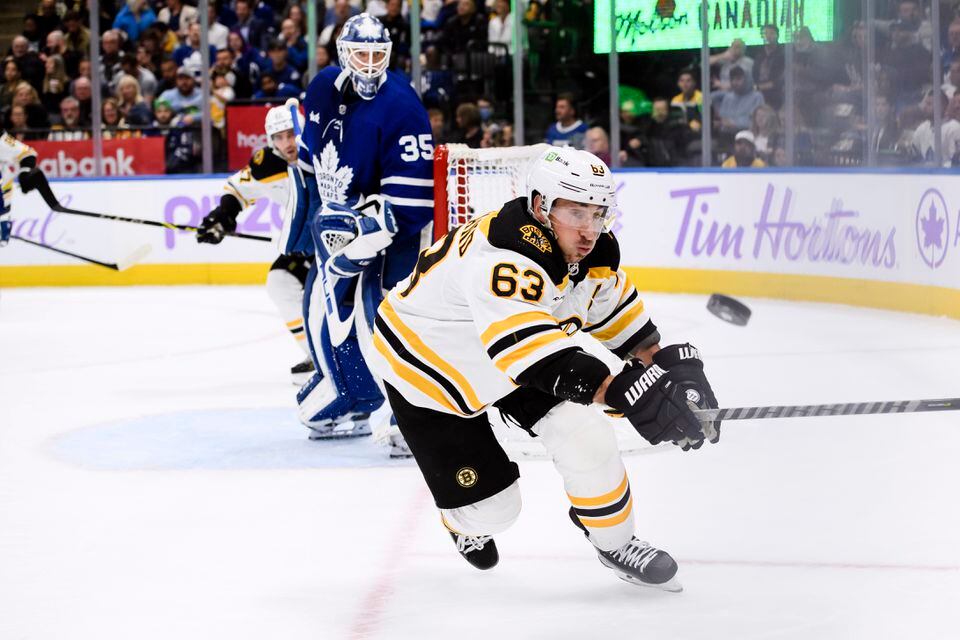Why Did Harper Force An Election?
Posted September 7, 2008 12:00 pm.
This article is more than 5 years old.
The move sends Canadians to the polls for the third time in four years.
Harper said this election will be a choice between certainty and risk at a time when the world economy has entered a period of instability — a statement aimed at scaring voters away from Liberal Leader Stephane Dion’s proposed overhaul of Canada’s tax system.
He was immediately blasted by his opponents, who accused him of a failed right-wing policy that has ignored climate change, battered the economy, and abandoned the poor and laid-off workers.
“Between now and Oct. 14, Canadians will choose a government to look out for their interests at a time of global economic trouble,” Harper said after meeting with Jean.
“They will choose between direction or uncertainty; between common sense or risky experiments; between steadiness or recklessness.”
Harper’s managerial acumen in a slowing economy will be pitted against Dion’s “Green Shift” plan — designed to shift taxation off income and on to greenhouse gas-emissions.
Harper said now is not the time to gamble on Dion’s plan.
“The opposition insists on large-sale spending and a new tax. But even they admit that their carbon tax proposal is a work in progress,” he said. “This tax will pack a cost on to every expenditure every family and every business makes.”
It’s a message Harper is expected to pound home every day throughout the 37-day campaign.
Dion fired back, pitching the Green Shift as a simple idea supported by most economists — cut income taxes and shift taxes to pollution.
He said the election offers a stark choice between the Liberals and the “most Conservative government in our history.”
Dion accused Harper of abandoning the poor, squandering the $12-billion surplus left by the Liberals, and standing idly by as the economy shed hundreds of thousands of manufacturing jobs.
“The words `fight against poverty’ have yet to cross the lips of Mr. Harper,” Dion said. “With this Conservative ideology, Canadians are left to fend for themselves.”
He promised to reduce poverty by one-third in his first mandate, create jobs and make Canada a leader in the Green revolution.
He also accused Harper of being the most secretive and manipulative prime minister in history, and promised to run an open, transparent government.
In calling the election, Harper ignored his own fixed-election-date law — legislation he’d explicitly pitched as a means of stopping prime ministers from calling snap votes whenever the political tide felt favourable.
In what will likely be a regular riposte, the Liberals issued a press release under the headline “Conservative Broken Platform Promise of the Day,” which quoted the Tory blue book of 2006.
Elections are to be held every four years, said the 2006 Conservative campaign promise, “except when a government loses the confidence of the House.”
Harper justified breaking his own law by saying Parliament, which was to resume Sept. 15, had become “dysfunctional” and requires a fresh government mandate as the country sails into global economic turbulence.
NDP Leader Jack Layton accused Harper of ignoring climate change and doing nothing as companies ship Canadian jobs overseas.
He said an NDP government would end tax breaks for companies that move jobs out of the country and offer them instead to companies that help the environment. He also promised tough laws to crack down on polluters.
He said the NDP is the only party offering real change, echoing the theme of the Obama campaign in the U.S.
“We’re offering, instead of Mr. Harper’s approach, a vision that looks forward,” Layton said.
Layton is campaigning as a prime-minister-in-waiting, rather than the New Democrats’ traditional social conscience roll. That mantle appears to have been taken up by Elizabeth May and the Green party, which leveraged its first MP into the Commons last weekend by wooing Independent Blair Wilson, a former Liberal.
May kicked off her campaign in Guelph, Ont., with an impassioned plea to voters to “wake up,” vote for change, and save the environment and the planet.
“To all of you who are disenchanted, dispirited, disappointed and disillusioned, this is the time for you to wake up and recognize that the leadership does not exist at the series of podiums you’ve just watched over this morning. The leadership is the people of this country because in a democracy the people are in charge.”
Polls have put Green support as high as the mid teens — enough to change any of the mainstream parties’ fortunes depending on whether it holds or moves en masse on election day.
The environment was also a top issue for Bloc Quebecois Leader Gilles Duceppe.
“Are the proposals made by Stephen Harper reflecting what Quebecers want?” he asked. “I don’t think Quebecers are supporting the fact that he’s giving billions of dollars to the rich oil companies instead of fighting for the environment and applying Kyoto.”
Duceppe, who is seeking to maintain his party’s 48 Quebec seats in the face of waning sovereigntist sentiment, compared Harper’s Tories to George W. Bush’s Republicans. He said the Tories “are fighting for the free circulation of firearms” and for the censorship of the arts.
He also accused the Conservatives of eroding women’s right to abortion, alluding to the possible introduction of new laws that take into account unborn children who are victimized by violent crime.
It’s Canada’s fifth general election in 11 years and the third in just over four, dating back to June 2004, when a 25-year spell of successive majority governments ended.
Public opinion polling over the past year suggests another minority is in the offing — common wisdom that’s been openly embraced by Harper, who doesn’t want to scare off voters wary of what a Tory majority might do.
With five parties now represented in the House of Commons and the separatist Bloc squatting on 15 per cent of all federal seats, winning a clear parliamentary majority of 155 MPs appears difficult.
Moreover, there’s no clear momentum currently driving any one party, nor is there a single compelling election issue, according to pollsters.
The Conservatives appear intent on exploiting the current tepid public reaction to Dion’s Green Shift, while at the same time avoiding a series of potential autumn pitfalls.
Those Tory trip wires include a series of ongoing ethics investigations into various Conservative party activities, Canada’s third-quarter economic report card, and the unpredictable impact of the Nov. 4 U.S. presidential election.
When the writ dropped the official standings in the 308-seat House of Commons were: Conservatives, 127 seats; Liberals, 95; Bloc Quebecois, 48; NDP, 30; four Independent; and four vacant.
Blair Wilson, while carrying the Green party banner, is officially still an Independent, since the party must win at least 12 seats to earn official party status.
The campaign ends a tumultuous two and a half years of minority Tory rule.
The Conservatives, elected Jan. 23, 2006, go into this campaign having managed the longest, uninterrupted parliamentary minority in federal history. While Mackenzie King’s Liberal minority of the 1920s lasted longer, it dropped in and out of majority status due to byelections.
Moreover, Harper’s minority was numerically the weakest of the dozen since Confederation — making its longevity all the more remarkable.
Harper’s Conservatives ended almost 13 years of Liberal government on Jan. 23, 2006, by claiming 36 per cent of the popular vote.
When the dust settled, the Tories had 124 seats in the 308-seat Commons — 30 short of a majority and thus the weakest of a dozen minority federal governments since Confederation. But the Conservatives had established a 10-riding beachhead in Quebec, suggesting room for growth in what had been a Tory wasteland throughout the 1990s.
The new prime minister quickly showed he was not afraid to rock the boat.
Harper’s first cabinet poached freshly re-elected Liberal David Emerson from the Opposition front bench, and added an appointed Senator in the person of Tory campaign co-chair Michael Fortier.
Fortier now faces his first campaign as a candidate, having skipped the opportunity to run in several byelections. Published reports suggest Emerson won’t seek re-election.
By the end of June 2006, Harper’s Conservatives appeared to be on a solid trajectory toward majority support territory, spiking above 40 per cent in some polls.
But it proved to be vulcanized rubber ceiling for the Tories and they have seldom bounced that high again.
The autumn of their first year in power, the Conservatives galvanized one angry constituency with $2 billion in spending cuts that targeted such things as the court challenges program, adult literacy and women’s programs — while posting a $13 billion surplus for 2005-06.
They infuriated another constituency by breaking an election promise and restricting income trusts.
And their first attempt at environmental legislation was greeted with such widespread disdain that it was all but scrapped and the minister was shuffled.
Harper also shocked the Commons by announcing he would recognize “the Quebecois” as a nation within a united Canada.
The general election call cancels three federal byelections that were to take place on Monday and a fourth slated for Sept. 22.










